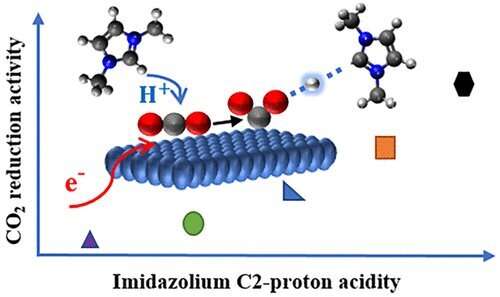Best of Last Week—Cause of the first mass extinction, efficiently converting CO2 to CO, health dangers of vaping

A team of geobiologists at Virginia Tech found clues to Earth's first known mass extinction event 550 million years ago—evidence shows that its cause was tied to a global decrease in oxygen. Also, a pair of archaeologists, Marie-Lys Arnette and Anne Austin, found that tattoos on ancient Egyptian women appeared to be a way to ask the Gods for protection during childbirth. And a team of archaeologists from the University for Foreigners in Siena discovered a pair of 2,000-year-old bronze statues in an ancient Tuscan thermal spring, a find that represents the largest deposit of bronzes from the Etruscan era in Italy.
In technology news, a team at the University of Twente, working with a group from Shell, developed a mechanism that allows for 100% efficient electrochemical conversion of carbon dioxide into carbon monoxide. Also, a team at UMass Amherst assessed the quality of AI literary translations by comparing them with human translations. They highlighted some of the shortcomings of current computational models used to translate foreign texts into English. And a team at the Georgia Institute of Technology investigated the degree to which e-scooters and e-bikes displace cars through the use of real-world data and found that in many cases, such displacements do occur. Also, a combined team of researchers from Ciudad Universitaria and Universidad Nacional de Cuyo, created a computer model made from real images of soccer matches that showed the defensive strategies used by a given team.
In other news, a team at The City University of New York found evidence that vaping exposes users to harmful levels of particulate matter. They also noted that the size and content of the particles inhaled by users tends to determine the degree of damage in the lungs. Also, an international team of researchers created crystals that can generate electricity from heat. The synthetic material was made of manganese, copper, sulfur and germanium, the researchers noted, using a simple process. And finally, a team of researchers at the University of Missouri has found that dietary supplements such as nicotinamide riboside pose a cancer risk, along with brain metastasis.
© 2022 Science X Network